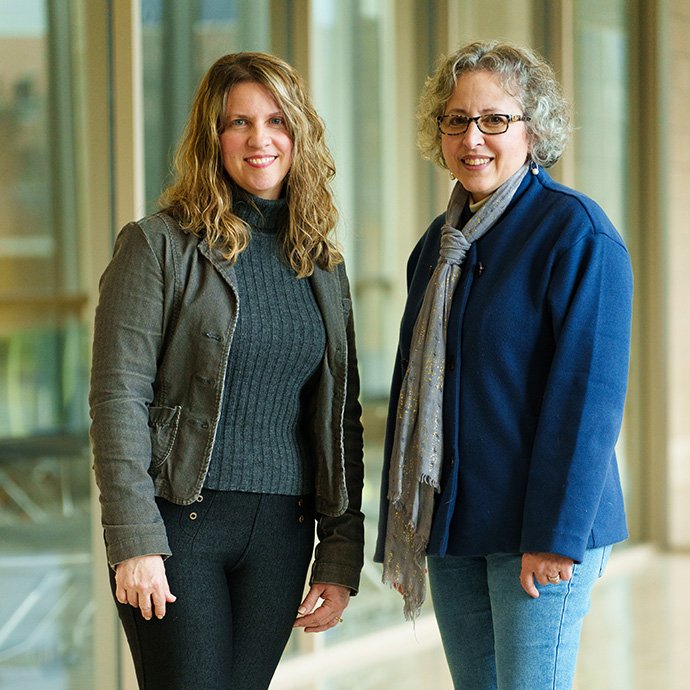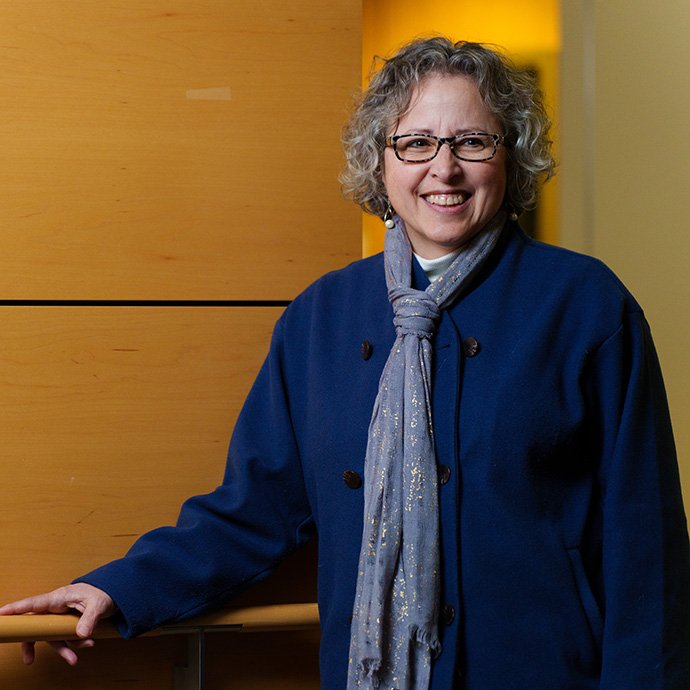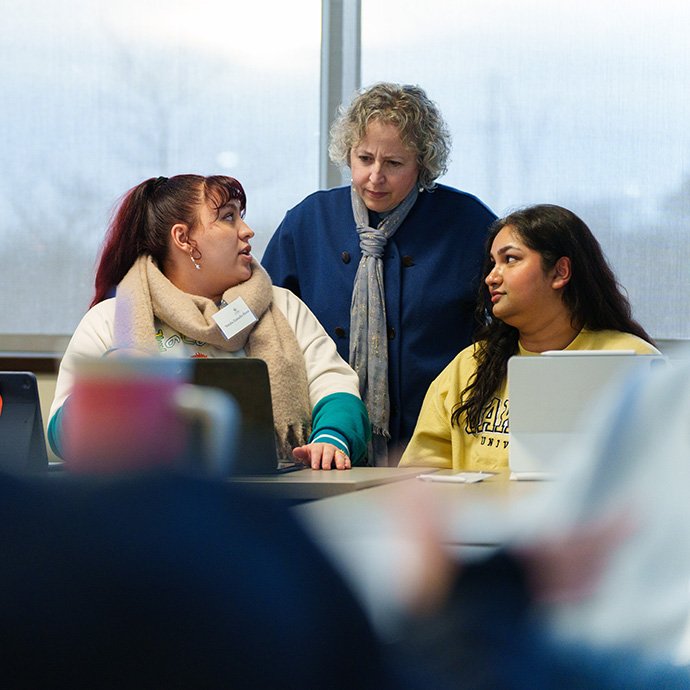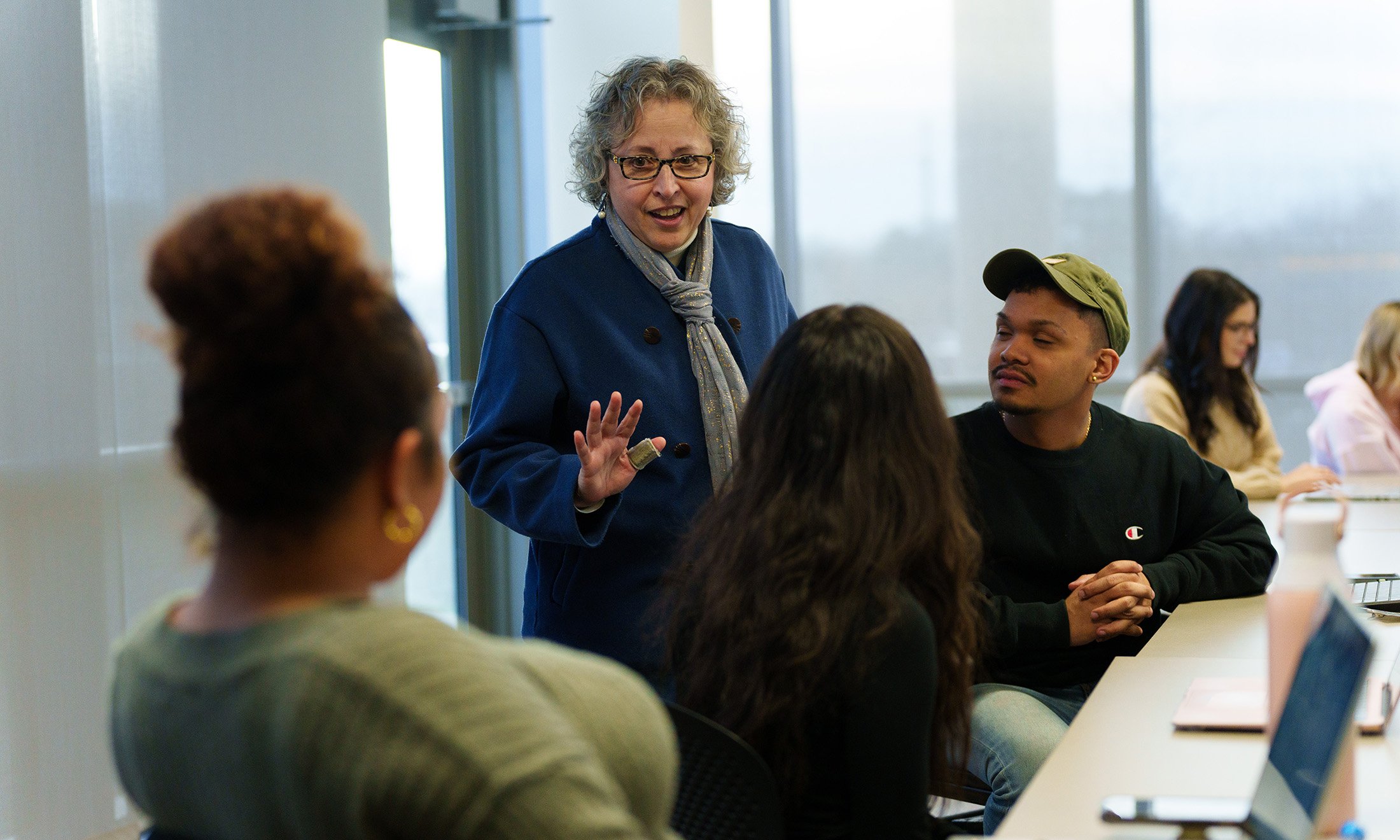Inspired Aspirations
ASPIRE program creates inclusive space for future nurses
Thanks to a nearly $2.2 million Health Resources and Services Administration (HRSA) grant that Professor Julie Kruse, Ph.D., applied for, Oakland University’s School of Nursing was able to kickstart the ASPIRE program — Achieve Success through Professionalism, Integrity, Resilience and Engagement.
“The focus of ASPIRE is to increase nursing progression and graduation rates,” explains Teresa Chahine, the wellness success coach for ASPIRE. “Additionally, we look at the retention of individuals from diverse or disadvantaged backgrounds; racial, or ethnic minorities that are underrepresented amongst nurses.”
 |
| Julie Kruse (left) and Teresa Chahine (right) |
Students apply and interview for the program and are selected using criteria set by HRSA.
The group of 30 nursing students has a three-hour session each month, filled with presentations on well-being and resilience, guest speakers from various nursing associations, skill-building workshops and goal-setting seminars. They are also provided four one-hour meetings with a financial planner to go over budgeting and credit management and provide information on investment opportunities and financial support resources.
“It’s my favorite part of the month,” says Giovanna Ivezaj, a sophomore in OU’s nursing program. “It’s a safe space where we share our struggles. I get to be around people who are a semester ahead of me or below me, and they give advice. It's like a group therapy session and I always love it.”
Each student is also provided $4,250 each semester, a financial lifeline on which the students and their families rely.
“You can see the difference it makes because they can finally breathe,” Chahine says.
 |
Chahine has more than 35 years of nursing experience, specializing in psychiatry, and has a small private practice she does once a week. She’s also the president of the Hispanic Nurses Association. ASPIRE students are required to meet with her once a month for wellness checkups.
“Dr. Kruse is looking at more of the research and publications side of things,” explains Chahine. “I'm looking at student health, human element and resilience. I want to provide mental health support for these students.”
A Cuban immigrant, Chahine was a first-generation college student. Her mother passed away when she was 13 years old. By the time she was 18 years old, Chahine was balancing college courses and helping her non-English-speaking father take care of her two younger siblings.
“The students and I have the same stories,” Chahine says. “When people present at our meetings, they have to tell their stories, too. When the students realize their stories are similar to those with a Ph.D. or they've made it big in a company or they represent an organization that has their backs, they realize, ‘this can be me.’”
 |
Chahine’s focus is to reiterate to her students that nobody can stop them from achieving their goals. She instills confidence and resilience in her students, letting them know they have a strong support system and helping them stay focused and determined to reach their highest potential, even if the road gets bumpy.
“A failure is sometimes just another opportunity,” Chahine says. “Nothing's going to hold you back, except for yourself. I've had a student say to me, ‘My instructor said I failed because I got 74.6% when I needed 75%.’ They thought, ‘It's over.’ Well, you can see it as over, or you can say, ‘I'm going to take it again and get a higher grade; nothing's going to stop me.”
Students seem to be taking to this mindset, as ASPIRE has a 100% success rate with their students. Everyone that’s ever been enrolled in ASPIRE has achieved what they set out to do or are on track to, including Ivezaj.
“I look forward to when she winds up graduating and I'll be crying because I’ve seen her growth in the last two and a half years,” confesses Chahine.


 March 05, 2024
March 05, 2024
 By Michael Downes
By Michael Downes
